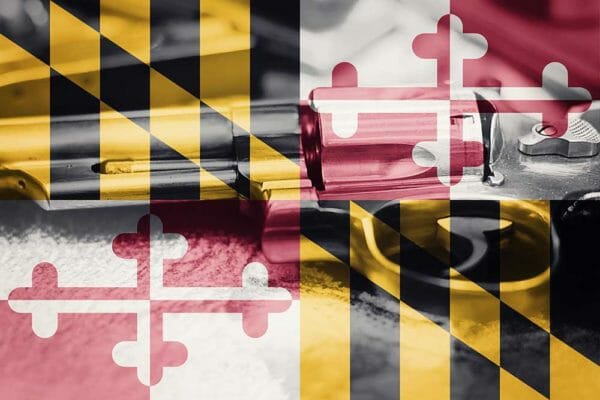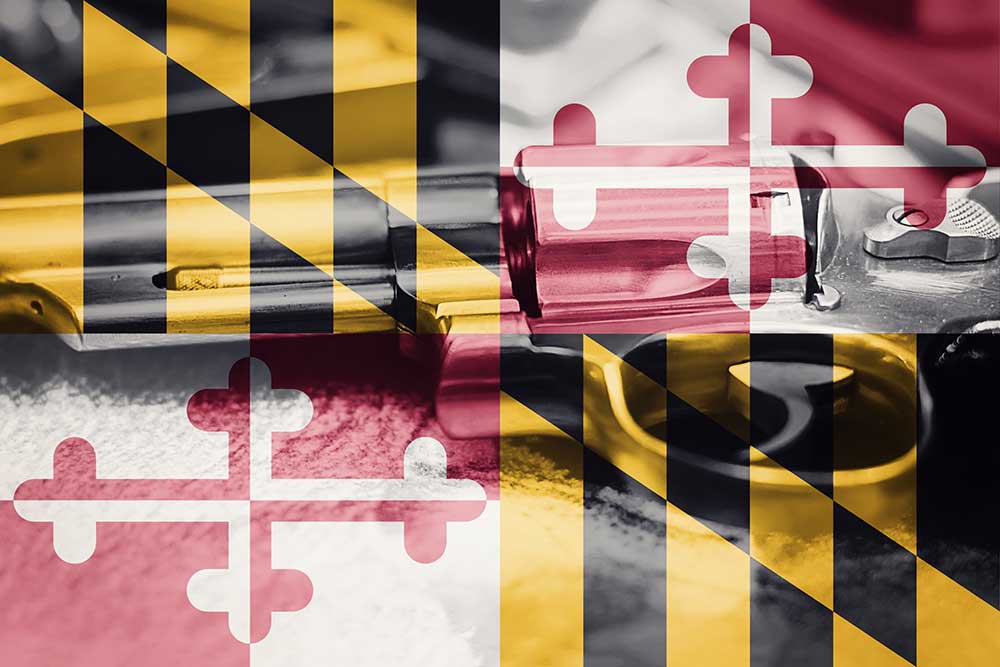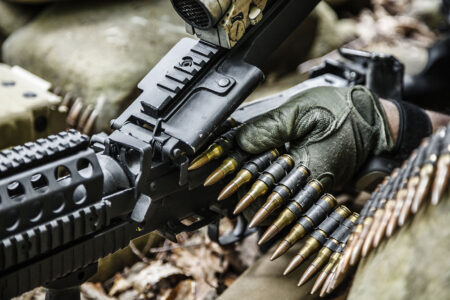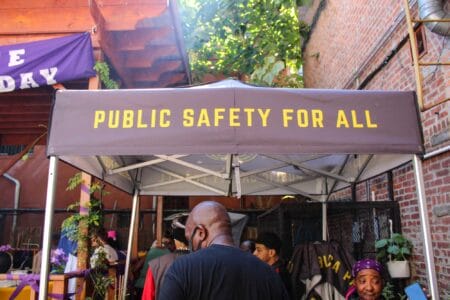
The United States Court of Appeals for the Fourth Circuit en banc ruled that the Maryland handgun purchase license is constitutional.
The case was filed by Maryland Shall Issue (MSI) and challenged the Maryland law that requires Maryland residents to apply for and receive a handgun purchase license before they can exercise their right to acquire firearms. To get a Maryland Handgun Qualification License (HQL), a person must complete a four-hour training class, making the right to bear arms the only right in Maryland that requires a class and an application before a citizen can exercise it.
The Supreme Court’s Bruen decision was clear. Associate Justice Clarence Thomas stated that the Second Amendment cannot be treated as a “second-class right,” and the Plaintiffs in the case felt that the State of Maryland was treating the right to bear arms as a second-class right. For a gun law to be constitutional, it must be consistent with the text, tradition, and history of the Second Amendment. MSI felt that the HQL could not survive the Bruen test.
The law didn’t survive the legal challenge when presented to a panel of three judges from the Fourth Circuit. The three-judge panel felt the HQL felt outside the original text of the Second Amendment. Once it becomes evident that the text does not cover a law, the burden of proof shifts to the state to provide historical analogues from the founding era to show that the law is consistent with the tradition and history of firearms regulation.
Anti-gun states try to use the ratification date (1868) of the 14th Amendment as the founding era, but this tactic fails more often than not. Some states tried to submit laws based on race and used laws from the Reconstruction period after the Civil War beyond the time frame of most legal scholars’ understanding of the founding era. Maryland didn’t even do that. Instead, it relied on a footnote in Bruen that said not all concealed carry permits are presumptively unconstitutional.
Maryland asked for an en banc hearing from the Fourth Circuit. An en banc hearing means the Court’s full bench hears a case. When en banc is granted, the panel’s decision is vacated. The Fourth Circuit granted the en banc request from Maryland and reheard the case. This time, the Court would determine the law was constitutional.
The judges gave several reasons for coming to this conclusion. The judges referenced Bruen in their opinion. In Bruen, Associate Justice Brett Kavanaugh stated in Footnote Nine that a requirement for a concealed carry permit is not necessarily unconstitutional if the state doesn’t have the discretion to deny a license. Even though SCOTUS was talking about concealed carry permits and not handgun purchase licenses, the judges applied the dicta to the HQL and ruled that the HQL did not have “abusive ends.” The plaintiffs argued that any “temporary deprivation” of the Second Amendment-protected right to bear arms constitutes “infringement.” The Court rejected the plaintiffs’ arguments.
“In the ‘shall-issue’ discussion, the Court established guideposts that reviewing courts may use to determine whether a ‘shall-issue’ licensing law ‘infringes’ the right to keep and bear arms,” the Court wrote. “The Court explained that “shall-issue” licensing laws, which employ ‘narrow, objective, and definite standards’ and do not give authorities discretion with regard to issuing a license, ordinarily do not prevent law-abiding individuals from exercising their Second Amendment rights. See id. (citation omitted). Thus, such laws generally do not ‘infringe’ the right to keep and bear arms. But the Court further stated that it did not ‘rule out constitutional challenges’ to ‘shall-issue’ licensing laws that ‘deny ordinary citizens their right to public carry.’”
The plaintiffs argue that multiple background checks are redundant. To get an HQL, an applicant must pass a background check. When the applicant buys a firearm, they must pass a separate background check that uses the same information as the first, meaning it is unlikely that the second background check will find any other information. The plaintiff’s argument did not move the liberal judges on the bench.
“In sum, background checks under the 77R process and the HQL statute differ because only the HQL statute involves the submission of fingerprints, and the background checks for each process may occur at different points in time,” the judges wrote. “In light of these distinctions, and because the HQL statute effectively strengthens the 77R process, we reject the plaintiffs’ argument that the HQL statute’s background check is wholly redundant and so abusive as to ‘infringe’ the Second Amendment right under step one of the Bruen framework.”
Not all the judges agreed with the en banc’s decision. Judge Paul Niemeyer admonished his colleagues for using a footnote in Bruen to find for Maryland. He claimed that the Court “errs” when reading Footnote Nine.
“But the majority errs in reading Footnote Nine to control this case. Contrary to the majority’s claims, Footnote Nine did not presumptively immunize Maryland’s licensing regime—nor any others—from constitutional challenge absent special circumstances,” Judge Niemeyer wrote in his dissent. “It rather limited the Court’s holding to the particular kind of licensing regime at issue in Bruen while leaving open constitutional challenges to other kinds of licensing regimes. Reading Footnote Nine to establish anything more would elevate implications from dicta over the mandatory text-and-history test established in Bruen.”
The most vigorous dissent came from Judge Julius Richardson. The Trump appointee showed dismay about the Court shoehorning the HQL into the Bruen decision. Judge Richardson accused the en banc of carrying “Maryland’s defense across the finish line.” His dissent was well thought out and well-reasoned. He highlighted that Maryland gave no useful historical analogues and concentrated their argument on Footnote Nine
“Deterred by these requirements, Plaintiffs challenged this regime as violating their Second Amendment rights,” Judge Richardson wrote. “Maryland eventually defended its law before a panel of our Court. But rather than identifying any relevant historical support for its regulation, Maryland rested its case on a footnote in a Supreme Court opinion. The panel, unmoved by this effort to bypass controlling principles, held that Maryland’s law violates the Second Amendment.”
MSI vowed to file for a writ of certiorari, a petition to the Supreme Court to take up a case. SCOTUS doesn’t have to grant cert and has been reluctant to do so unless there is a circuit split, but with the granting of cert in several high-profile gun cases, SCOTUS might be willing to take this one.
“The Fourth Circuit today rejected our constitutional challenge to Maryland’s Handgun Qualification License requirement, holding that the law did not even infringe on the Second Amendment right to keep and bear arms,” MSI wrote on X (formerly Twitter). “We believe that holding is contrary to controlling Supreme Court precedent and is plainly wrong as a matter of common sense. The majority opinion is, in the words of the dissent, “baseless.” The petition for certiorari to the Supreme Court practically writes itself.”
There is no timeline for the petition, but SCOTUS would be wise to grant cert to clarify Footnote Nine’s meaning.
About John Crump
Mr. Crump is an NRA instructor and a constitutional activist. John has written about firearms, interviewed people from all walks of life, and on the Constitution. John lives in Northern Virginia with his wife and sons, follow him on X at @crumpyss, or at www.crumpy.com.







I got news for the idiot judge, there is no part of the second amendment that requires a permission slip from the government. ” Shall not be infringed ” .
Evil dumbasses.
number of “judges” that need to be kicked off the bench and moved to comifornia penal colony is staggering
If you’re not free to exercise it until you fulfill state-mandated requirements and/or pay the state a fee it’s not a “right” but, rather, a “privilege”.
The “Bill of Privileges” just doesn’t sound right…
Of course the HQL is constitutional. I have the original writs to my 11th great grandfather, an early settler to he colonies, signed by King Jame I granting permission to purchase a brace of dueling pistols and another by King Charles I for my 10th great grandfather to inherit them. Not really. I can’t imagine what fanciful magic mushroom trip led the majority of the 4th Circuit to reach this decision and I am not going to waste any time reading the en banc opinion. The problem being I can’t see SCOTUS spending much time on such a comparatively small… Read more »
Is there any other consumer product that can be bought over the counter that you need a government permission slip to purchase?
I’ll wait.
Hey, dumb ass governess in Oregoneistan Tina Kotex. Readem and weep. It will be the same for your measure 114 in the end too. It is unconstitutional to put my right up for a vote I don’t give a dam what the Oregoneistan constitution says.
Vote republican if you got a brain, if you don’t you will swallow the coolaid and be a good sheeple and vote democrat unless you wake up from your Wokeness like some are doing.
Trump/Vance 2024
It IS INFURIATING that the name of these INSTIGATORS keeps on being misspelled! The correct spelling of the ANTI-GUNNER, ANTI-CONSTITUTIONALIST “judges” group IS: The Fourth CIRCUS Court!
Really, we don’t even need the 2nd Amendment.
HLB